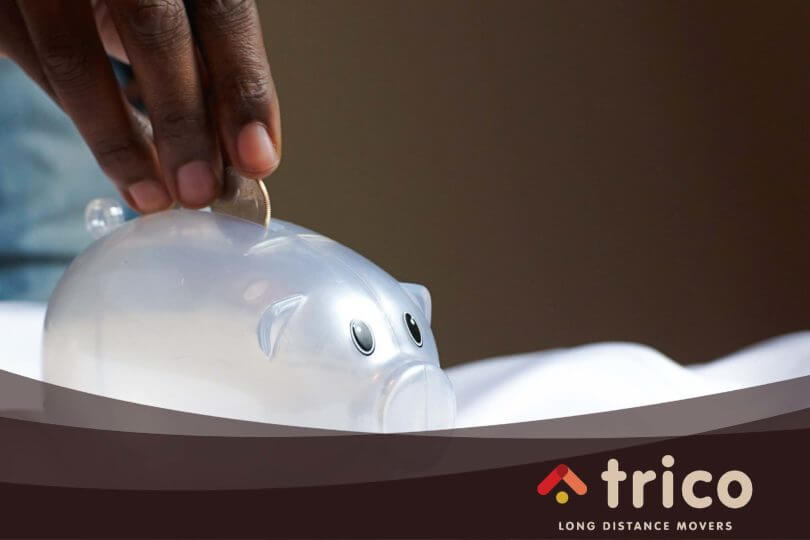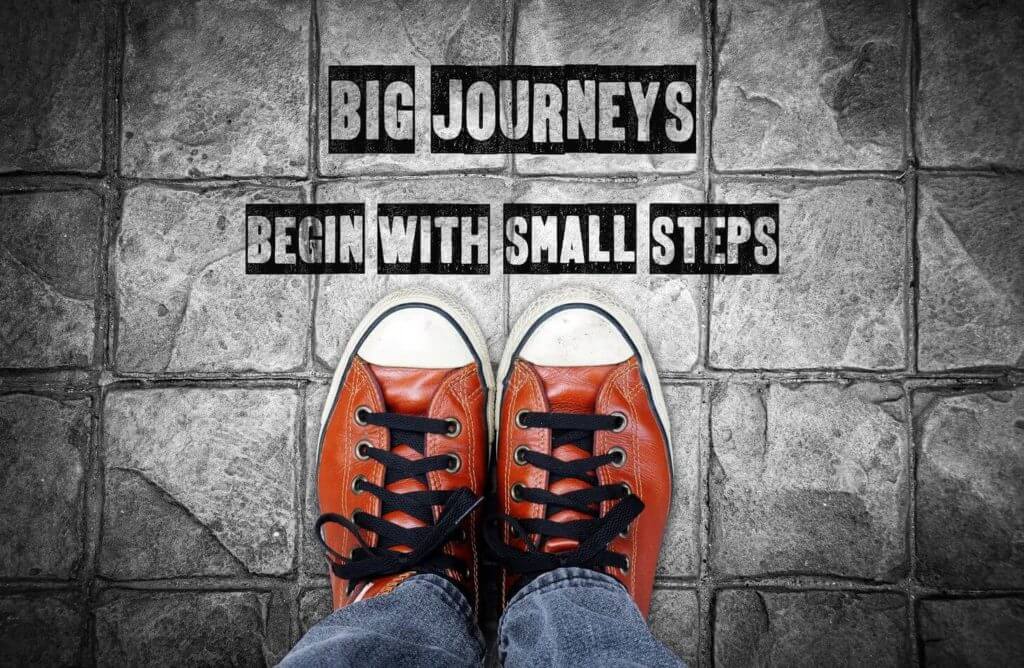How to save money to move is a question you can’t do without when planning a long-distance journey. Sure, you can also try sticking to your initial budget, but in that case, we hope you’re not going far from your room. Believe us, there are good feelings to be found in gaining control over your finances and reaching the loftiest goal you’ve ever set.


Well, it does seem like a good foundation for life ahead. And that’s why we’re here, to help you learn some of the most vital steps you have to take and properly prepare before you head off.
Although the relocation process implies a number of tasks, it can’t be the same for everybody. That is why we certainly won’t make a mistake and say that relocating without setting a personalized budget plan is possible — at least a successful one.
Getting familiar with how much cross-country movers cost will largely depend on the long-distance moving services required. A full-service relocation, with a car shipping service and a storage service included, can’t be as affordable as the one with only professional packing. And to relocate efficiently, you’ll have to pay for some of these, but don’t just ditch hundreds of bucks into something you could do by yourself.
That’s precisely why it’s important to take a piece of paper and list all the factors affecting the final price of your upcoming journey. The closer you are to the overall amount, the more probable it will be to figure out affordable relocating options. Furthermore, it will help you find the cheapest way to move out of state.
When you know the approximate figure of your long-distance moving, it’s time for a saving mood. Getting into it as early as possible will save you a ton of – otherwise inevitable – relocation stress. Just imagine the scenario where you have to get to some big bucks pretty fast. Unless you’re very good at robbing banks, we recommend taking our tips and organizing your move on time.
This is a perfect moment for a self-assessment in order to get a general idea of how far your goal is. Take an objective look at your financial situation and compare it to your final destination – is there a big gap between your income and the wanted relocation budget? Try to be honest and think how hard it will be to climb that mountain. If you seriously commit to what you long for, you may even succeed. And to do it properly, here are a few steps you need to take:
You are sure you want to get out of here, right? Well, whatever your reasons to move, the goal is quite clear. With or without a dedicated relocation fund, you are the only person who knows your lifestyle well, hence, the only one who knows the secret of how to make these savings goals a reality.
Also, you’re probably wondering how much money you should save up before moving. Although there’s no one correct answer to this question, three to six months of living expenses will keep you on the safe side. Having this information on your mind, you have to make saving a habit, starting now.
Even though no one got too excited with this one, monitoring every single cent you spend is a good idea, especially if you’re a first-time saver. Some relocation hacks may not be that fun, but they’re certainly effective. And tracking your money down should be a part of a relocating cross-country checklist, whether it’s a coffee, date, bills, or something more critical like hiring a long-distance moving company.
To learn more about tracking the expenses, check out the video below.
No matter if you’re relocating to a smaller home or you may be relocating from an apartment to a house, there are many things to do before the transition itself takes place. One of the things you will certainly have to do on your way is to identify the unnecessary expenses and eliminate them. To make it easier, one of the best tips you can follow is to divide your daily expenditures into categories:
Cutting on expenses means anything from a modest adjustment to major spending habits change. Let’s see how some of those mentioned above can be changed, although you’re used to paying for them regularly.
Let’s talk coffee or any other drink you fancy, which may cost you even more than a daily dose of caffeine. Paying $3-5 every day for such a small luxury, you’ll be spending $720-1,200 a year, which is – we all agree – a considerable amount of cash to work with. And we all know that one cup of coffee is like no coffee at all. And yes, you can calculate the figure yourself. Yup, quite shocking, isn’t it? If you don’t believe your eyes or logic, use the coffee cost calculator to see where it gets you. Learning how to prepare home-brewed coffee would make a world of difference for your savings account.
The same goes for eating out. That large chunk of the budget that disappears monthly is no mystery at all. You spent it all in your favorite restaurants because you’re probably convinced that eating well is not possible when trying to cut down on your basic needs. Well, truth to be told, you can be surprised how much you can save when you kick some bad food habits and start implementing your cooking skills. Not to mention all the health benefits you’ll gain from this, too.
Planning your meals is a vital step to learn how to cut down on the number of times you go shopping and the number of groceries you need. Buying too much food and wasting it afterward is one of the common ways people waste their money.
Statistics show that approximately one-third of the food produced is never eaten, which could be translated into one-third of your overall budget simply tossed away. So, before you make the same mistake once again, we advise you to plan your menu carefully for the upcoming week or a month even. Knowing what you’re going to cook makes calculating the expenditures pretty easy, preventing you from going over your budget.

Now that you know how to look at the situation realistically, the first thing that comes to mind is what is the least expensive way to move and save on relocation costs. Sure, professional movers are there for a reason, but hiring them doesn’t mean they have to do every single thing from start to finish. For example, packing up your home is a time-consuming task and tolerable enough to do without any professional help.
On the other hand, not hiring movers doesn’t mean your friends and family shouldn’t be there when you’re starting to pack for the big move. If you want to pack quickly, this is the best time to call in for a favor.
Still, packing everything up will not do. At least not if you plan to fit in that one moving truck. And not spend a little fortune on it.
There are many different methods to get rid of the items accumulated over the years, and preparing for a move might be just the perfect time to do it. Whatever you decide to do – donate, sell, or even throw something away – it’s vital to start as early as possible with sorting out your belongings and determining their destiny. Needless to say, clearing it all out will quickly pay off with a successful garage sale.
Remember, there are many items in your home that might not be worth selling. However, they could still be used or worn by people in need. This especially applies to donating clothes for the homeless, or maybe donating toys your kids outgrown quite some time ago.
The great news is that all types of packing materials, even the best-sized boxes, can be found for free or obtained for a small fee. Repurposing boxes is one of the smartest relocation tips out there that will help you reduce expenses drastically. Just go around your neighborhood and visit local grocery stores and bookstores. All of them will be happy to get rid of the piled-up boxes from their storage spaces.
Furthermore, look carefully around your house, because packing paper is not the only covering material you can use when packing fragile items. Old towels, sheets, and clothes will solve the problem. Even safeguarding bulky stuff and shifting furniture around doesn’t have to be a battle. Just use some of the old blankets to protect the items thoroughly, and you’re done.

We know, we know. Spending is much more intuitive than saving. And being self-disciplined can be such a burden sometimes. You want to let loose, to dip into that little fund of yours, to forget about your relocation dream. But, here’s the deal – you can’t do that now. Because you’re sure that your next stop is your new home, so, one more tip before the road: every dollar you detach from an old spending habit, attach it to your newly set goal. It may be intimidating, crazy even, to go down that road, but it will be worth it.